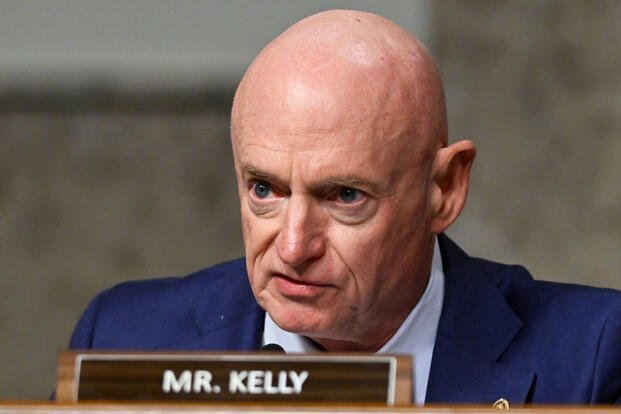Civilian Office, Military Obligations: What the Kelly Investigation Reveals

Senator Mark Kelly sits at an unusual point where civilian office and military law intersect. His appearance in a recent video[1] urging U.S. service members to refuse “illegal orders” prompted the Department of Defense to open a formal review. The Pentagon relies on statutory authority allowing certain retired officers to remain subject to the Uniform Code of Military Justice and to be recalled for potential discipline under 10 U.S.C. § 688[2]. The review places Kelly in a rare position for a sitting senator and raises questions about how far military obligations extend once a service member steps into elected office. Coverage of the announcement emphasizes the core issue is the point where political speech meets the command structures that maintain discipline in the armed forces.
The Video That Triggered the Review
The video featured six lawmakers with either military or intelligence backgrounds addressing U.S. service members. Kelly’s comments included the phrase that troops “can refuse illegal orders.” According to reporting from Politico[3], the Pentagon viewed the message as potentially harmful to “loyalty, morale, or good order and discipline.” Although five other lawmakers appeared in the video, Kelly stands alone as the subject of the review because the Department of Defense determined he remains under UCMJ jurisdiction as a retired Navy captain. The other lawmakers either never retired from service or come from intelligence agencies outside the UCMJ’s reach. That distinction shapes the Pentagon’s current treatment of the matter.
Legal Grounding for the Pentagon’s Authority
The Department of Defense justified its review[4] by pointing to its recall authority over retired officers, which appears in 10 U.S.C. § 688, and to several UCMJ provisions that apply to retirees on the rolls. The Pentagon reminded service members the UCMJ presumes orders to be lawful unless they are clearly illegal, such as commands that require a criminal act. It also referenced federal statutes[5] prohibiting attempts to interfere with the discipline of the armed forces. Kelly’s use of his military rank in the video appears to be a key factor in the Pentagon’s belief his conduct may fall within the scope of UCMJ review.
Why Kelly Stands Alone
Although the video showcased six participants, only Kelly currently faces military legal exposure. The Pentagon has stated that he is the only one whom the UCMJ still governs due to his retirement status. Other lawmakers in the video either served in the military without retiring or came from non-military national security roles, such as the Central Intelligence Agency. That jurisdictional point drives the Department of Defense’s current stance and explains why Kelly occupies a unique position in this unfolding story. The Pentagon has not publicly indicated any comparable review of the other five video participants.
Constitutional and Civil-Military Tensions
This case sits at the intersection of civilian democracy and military command structures. Kelly maintains that his message simply reminded troops of their legal obligations, as he explained in follow-up remarks reported by The Guardian[6]. The Pentagon, however, views the video differently and frames it as a possible threat to discipline and hierarchy. That tension highlights the longstanding challenge in American civil-military relations: how to balance the constitutional right of elected officials to speak with the military’s need for a stable and lawful chain of command. The situation also creates a rarely tested legal question about whether military authority can reach into the legislative branch when the individual in question retains retired-officer status.
The Constitution assigns Congress the power to regulate the armed forces while vesting command authority in the President. When a member of Congress remains subject to recall for potential military discipline, the separation between the branches becomes less clear. Reporting notes legal scholars consider this scenario extremely rare, with few modern precedents. That rarity underscores the unsettled legal landscape around military authority over retirees who hold high civilian office.
The Stakes for Civil-Military Boundaries
The Kelly investigation invites a deeper conversation about the boundary between military service and civilian governance. If the Pentagon pursues the review further, it could set a precedent for how the Department of Defense handles retired officers who transition into national leadership roles and then speak publicly on military matters. If the review ends quietly, the case may nonetheless shape how current and former service members approach public communication, especially during periods of political tension.
As the Department of Defense continues its assessment, observers will watch closely to see whether this situation becomes a one-off episode or the start of a broader debate over military obligations that continue after uniformed service ends. The answer will influence how the United States interprets the responsibilities of those who once served and now hold civilian power, and how the armed forces maintain discipline without overreaching into political life.
© Copyright 2025 Military.com. All rights reserved. This article may not be republished, rebroadcast, rewritten or otherwise distributed without written permission. To reprint or license this article or any content from Military.com, please submit your request here[7].

